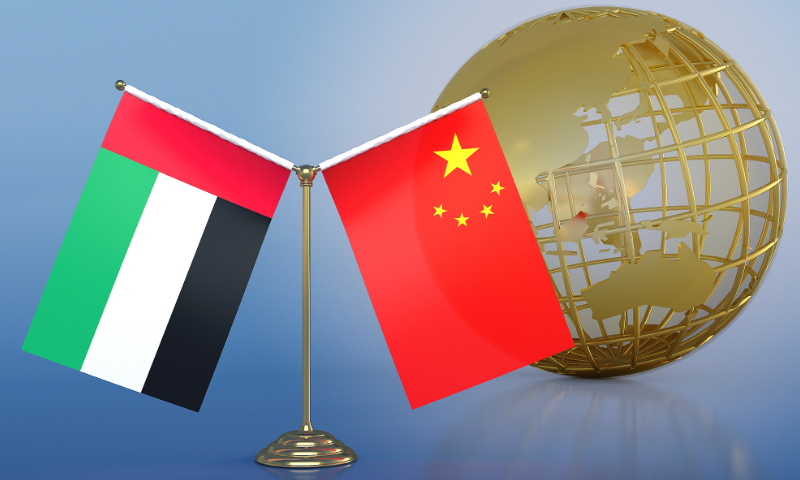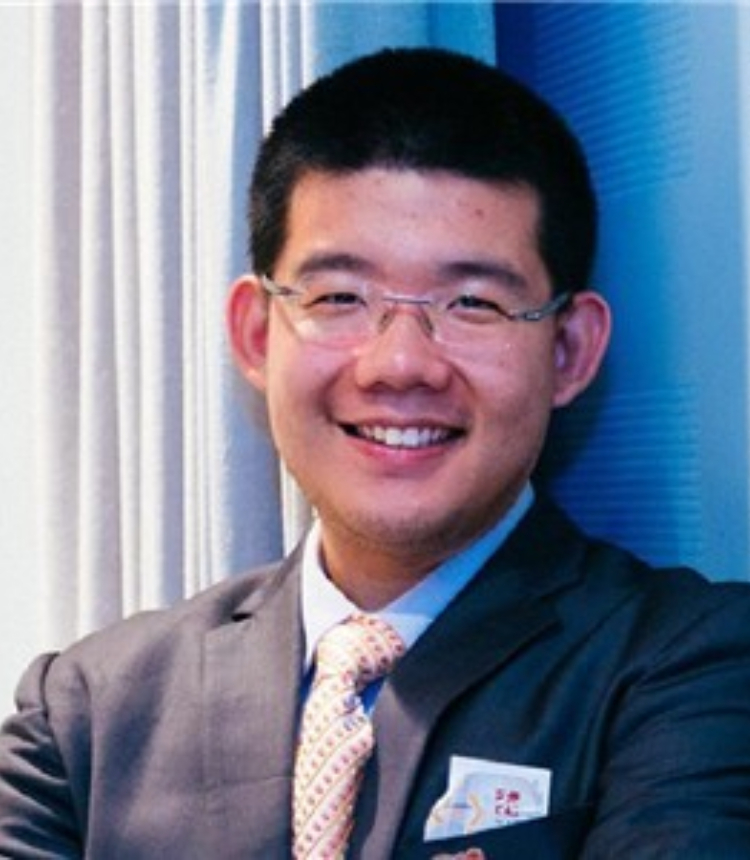
Photo: VCG
The visit of President of the United Arab Emirates (UAE) Sheikh Mohamed bin Zayed Al Nahyan to China underscores the importance both countries place on deepening economic ties and will send a positive signal to investors and businesses in both nations, encouraging further bilateral trade and investment, Zhang Tianze, secretary general of the UAE-China Chamber of Commerce (UECN), told the Global Times in an exclusive interview on Thursday.
The president is paying a state visit to China from May 28 to June 1, charting a course for further deepening of bilateral ties with China. The two countries are celebrating the 40th anniversary of diplomatic relations this year.
The visit signifies a crucial moment for both nations to advance their relationship by building upon previous successes and looking toward the future, according to media reports.

Zhang Tianze, secretary general of the UAE-China Chamber of Commerce Photo: Courtesy of Zhang Tianze
Speaking about the presidential visit, Zhang told the Global Times that the visit to China is expected to be a cornerstone in the evolving relationship between China and the UAE. "We anticipate that this visit will lead to the signing of several key agreements and memoranda of understanding (MoUs) that will cover a broad range of sectors, including infrastructure, technology, and energy," Zhang noted.
"We are confident that this visit will pave the way for enhanced cooperation and shared prosperity, benefiting not only our two countries but also the broader international community," the chamber head said.
The robust trade partnership between China and the UAE is a clear demonstration of the deepening bilateral relations between the two countries. In 2023, China-UAE trade reached 667.80 billion yuan, a year-on-year increase of 1.4 percent, according to data from the General Administration of Customs.
The UAE has been China's largest export market and second-largest trading partner in the Middle East for many years.
China's investment flows to the UAE increased by 16.48 percent year-on-year in 2023, accounting for approximately 60 percent of China's total investment in Arab countries, according to media reports.
This robust trade relationship is supported by numerous successful projects, such as the Khalifa Port expansion and the development of free zones like the China-UAE Industrial Capacity Cooperation Demonstration Zone, Zhang said.
"Looking ahead, we see significant potential in emerging sectors such as artificial intelligence (AI), biotechnology, and financial technology (fintech)," Zhang said, adding that collaborative efforts in AI can lead to advancements in smart city technologies and autonomous transportation systems, while biotech partnerships between the two sides can enhance healthcare outcomes and pharmaceutical development.
China and the UAE also share similar ambitious goals for green transformation, meaning high complementarity and vast potential in the bilateral cooperation.
Enhancing economic and trade cooperation with China is pivotal for the UAE's sustainable development goals, as the Middle East country is diversifying its economy away from oil dependency.
China is a global leader in electric vehicle (EV) production and technology, while the UAE is investing heavily in renewable energy projects, Zhang said, giving the example of the Mohammed bin Rashid Al Maktoum Solar Park, which is one of the world's largest single-site strategic renewable energy projects.
"We see opportunities for cooperation in the development of EV infrastructure, such as charging stations, and in the production and deployment of EVs within the UAE," Zhang said.
Joint ventures can also be established in battery technology and energy storage solutions, which are critical for the widespread adoption of renewable energy. Additionally, knowledge exchange programs can be initiated to train UAE professionals in cutting-edge renewable energy technologies and practices, the chamber head said.
By collaborating with China, the UAE can introduce advanced technologies and sustainable practices that promote energy efficiency and reduce carbon emissions, while Chinese investment in the UAE's green infrastructure, such as solar and wind energy projects, contribute to its national targets for clean energy, Zhang said.
The chamber head also noted the importance of building up stronger partnerships in agriculture technology, which "can help address food security challenges by promoting sustainable farming practices and innovative solutions in water conservation and crop management."
